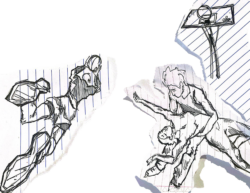With pitchers and catchers beginning their workouts this week, Major League Baseball is finally underway in 2012. However, as the players dust off their cleats and fans flock to Spring Training to catch a quick glimpse of their heroes, supporters of the Oakland Athletics are left scratching their heads at a rather bizarre offseason.
Few in recent years have dared to question the rationale of A’s General Manager Billy Beane, Mr. Moneyball himself. And yet, many have been puzzled by his recent $36 million acquisition of highly touted Cuban outfielder Yoenis Céspedes. Prior to signing him, the A’s had appeared to have already thrown in the towel on the 2012 season, trading young pitching studs Trevor Cahill and Gio Gonzalez for prospects while doing little else to bolster their already limited big-league roster. Céspedes’s deal makes him not just the highest-paid player on the team, but one of the most expensive players in team history.
Consequently, while such a signing would normally draw applause from fans, players, and front offices, the Céspedes signing drew staunch criticism. Not only did this move seem to counter Oakland’s prior moves this offseason, but suddenly the price tag had fans and analysts alike questioning whether Céspedes would even be good in the Major Leagues, as scouts doubted his ability to hit off-speed pitches, play center field, or even adjust to American culture.
A similar situation occurred two offseasons ago when the Cincinnati Reds signed fellow Cuban Aroldis Chapman for $30.25 million. But once the then-21-year-old lefty unleashed the first 105 mph fastball in the 142-year history of MLB, doubters quickly began to rethink their initial stance. After striking out 71 batters in just 50 innings in his sophomore season, it has become clear that at the very least Chapman will be a quality, if not elite, pitcher.
The similarities between these cases extend beyond their shared heritage, as both players have had their ability to play in Major League Baseball come into question despite their dominance abroad. While Chapman was already the ace of the extremely successful Cuban national team as a teenager, Céspedes belted 33 home runs in just 90 Cuban games last year, and compiled an astronomic .458 batting average at the 2009 World Baseball Classic.
Perhaps Red Sox pitcher Daisuke Matsuzaka is at fault here. His glaring label as a bust stems from five infuriating injury-riddled seasons in the majors after becoming the most expensive and talked-about international signing in MLB history.
Matsuzaka’s fall from grace is somewhat inexplicable given his reputation as the top pitcher in the Japanese League and his victorious exploits in each of the first two World Baseball Classics prior to signing with the Red Sox. But even more perplexing is how the hefty skepticism levied on the arrivals of Chapman and Céspedes doesn’t seem to extend to other Japanese players coming into the league.
If anything, MLB scouts should think more highly of Cuban players. Not only does Cuba have the world’s most successful international baseball team, ranked No. 1 by the International Baseball Federation, but Cuban players face a far less difficult cultural transition than Japanese players for obvious linguistic and social reasons. When one considers the enormous Hispanic community throughout Major League Baseball and around the US, this becomes quite evident. Furthermore, Cuban baseball interacts far more with other MLB-player producing countries through competitions like the Caribbean World Series and the Pan American Games, suggesting that they will most likely have an easier time adjusting their skills to the MLB.
While it is completely understandable to have reservations about paying $36 million for a player completely unproven in the MLB, scouts need to start showing some consistency when evaluating these unknown international talents. Frankly, every player in Céspedes’s circumstances has a chance of being a bust, regardless of whether he’s Cuban, Japanese, Dominican or Icelandic. Let’s give both him and the Athletics some time, considering that all this guy has ever done in his life is flat out hit.



